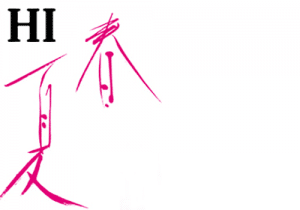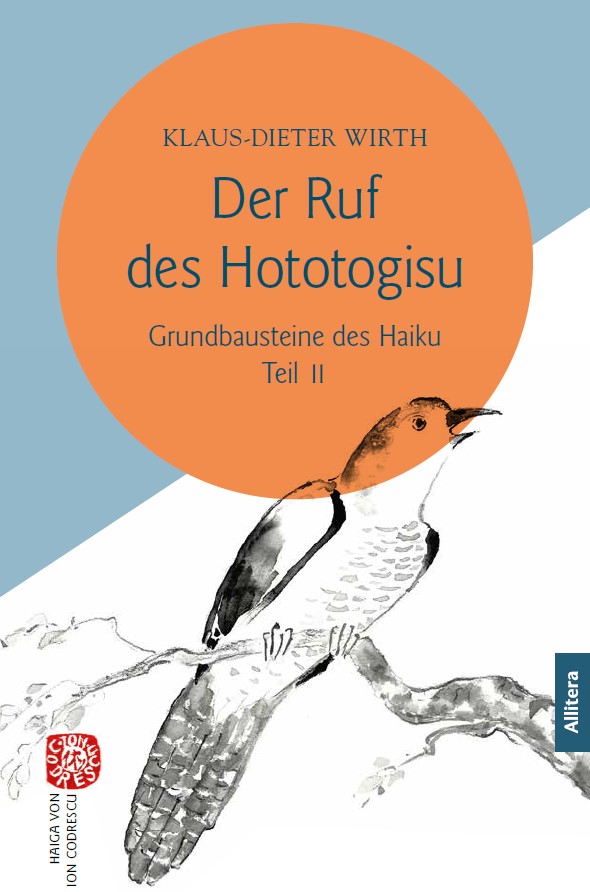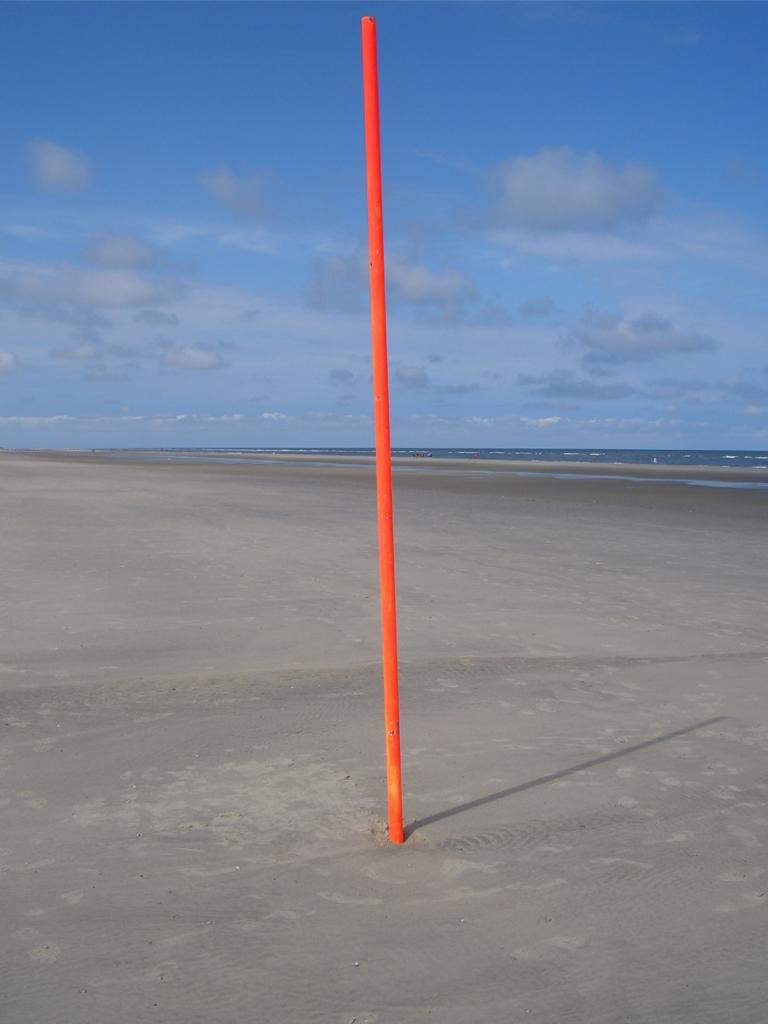Im Zeitraum August bis Oktober 2014 wurden insgesamt 300 Haiku und 11 Tanka von 71 Autorinnen und Autoren für diese Auswahl eingereicht. Einsendeschluss war der 15. Oktober 2014. Jeder Teilnehmer konnte bis zu 5 Haiku oder Tanka einsenden.
Diese Texte wurden vor Beginn der Auswahl von mir anonymisiert.
Die Jury bestand aus Birgit Schaldach-Helmlechner, Gabriele Brunsch und Birgit Heid. Die Mitglieder der Auswahlgruppe reichten keine eigenen Texte ein.
Alle ausgewählten Texte (47 Haiku und 1 Tanka) sind nachfolgend alphabetisch nach Autorennamen aufgelistet – es wurden bis zu max. drei Werke pro Autor/in aufgenommen.
„Ein Haiku/ein Tanka, das mich besonders anspricht“ – unter diesem Motto besteht für jedes Jurymitglied die Möglichkeit, ein oder bis zu drei Texte auszusuchen (noch anonymisiert), hier vorzustellen und zu kommentieren.
Der nächste Einsendeschluss für die Haiku/Tanka-Auswahl
ist der 15. Januar 2015.
Es können nur bisher unveröffentlichte Werke eingereicht werden. Keine Simultaneinsendungen. Die Einsendungen bitte im Mail-Body, keine angehängten Dateien.
Bitte senden an:
auswahlen@deutschehaikugesellschaft.de
Da die Jury sich aus wechselnden Teilnehmern zusammensetzen soll, möchte ich an dieser Stelle ganz herzlich alle interessierten DHG-Mitglieder einladen, als Jurymitglied bei kommenden Auswahl-Runden mitzuwirken. Das macht Spass und man lernt viel dazu.
Petra Klingl
Ein Haiku, das mich besonders anspricht
Blaulicht
Pflastersteine werfen
SchattenHans Jürgen Göhrung
Bereits der Begriff „Blaulicht“ führt den Leser in Sekundenschnelle auf die Dramatik eines Notfalls hin. Es sind ebenfalls Sekunden, die in einer solchen Situation von entscheidender Bedeutung sein können. Ein herannahendes Blaulicht taucht die Umgebung in ein unwirkliches Licht, vor allem in der Dunkelheit. Es lässt auch Unbeteiligte erahnen, dass es neben dem gewohnten Leben auch eine Daseinsmöglichkeit unter äußerst schweren und dramatischen Bedingungen gibt.
Pflastersteine erheben sich aus Gründen der Trittsicherheit in der Regel nur unbedeutend vom Untergrund ab, das heißt, die Fugen liegen etwa einen Zentimeter unter der Oberfläche der Pflastersteine.
Wenn nur geringe Erhebungen Schatten werfen, bedeutet das für mich, dass man mit den Augen nah dran ist. Ich ahne aus der Formulierung, dass jemand auf der Straße liegt, als das Blaulicht herankommt. Möglicherweise könnte auch ein Kleinkind die Entdeckung machen, dass Pflastersteine kleine Schatten werfen, aber die dichte Wortwahl und die Kombination mit dem Wort „Blaulicht“ lässt mir kaum eine andere Möglichkeit, als anzunehmen, jemand habe eine einen Unfall erlitten oder seine Gesundheit sei in akuter Gefahr und die Sanitäter kommen in diesem Moment. Die beiden Bilder fügen sich!
In der Beobachtung, dass Pflastersteine Schatten werfen, lässt sich der oder die Betroffene womöglich kurzzeitig von der schmerzhaften Lage ablenken, die kleinen Pflastersteinschatten werden ebenso bedeutsam wie der Schatten, der über den notleidenden Menschen gekommen ist.
So wandelt sich durch mein Lesen und meine Überlegung der Eindruck eines akuten Notfalls in das Mitfühlen einer Dankbarkeit gegenüber den eintreffenden Sanitätern, einem Gesundheitssystem gegenüber, das einem die berechtigte Hoffnung auf ärztliche Hilfe gibt.
Ausgesucht und kommentiert von Birgit Heid
stille Post
was wissen die Alten schon
von LiebeGabriele Hartmann
Da ist sie wieder, die Flüsterkette aus Kindertagen. Was der Letzte in der Tuschelreihe laut vorträgt, hat wenig mit der Ursprungsnachricht zu tun, sorgt aber, längst vor dem Abgleich mit dem Original, für Gelächter. Ich gebe hier gerne schmunzelnd meinem gedanklichen Spieltrieb nach. Eine harmlose Variante, die beim leisen Transport der Wörter aus der zweiten und dritten Zeile entstehen könnte, soll genügen: die Kissen lallten vor schönen Dieben. Während (jüngere) Kinder sich noch trauen, solche Satzgebilde unzensiert herauszuposaunen, versuchen Erwachsene in der Regel das Lückenhafte, wo etwas nicht genau verstanden wurde, mit eigenem Erfahrungsschatz aufzufüllen. Schon ist unter Umständen eine Ölspur in die Gerüchteküche gelegt. Es sei hier kurz erwähnt, weil sich darin ebenfalls das Bedürfnis nach Mitteilung und der Wunsch nach Zugehörigkeit zeigen. Was wissen die Alten schon … wage ich zu verallgemeinern, trifft mit der Pubertät alle Eltern. Urplötzlich sind sie peinlich, stellen dumme Regeln auf, sind Hinterwäldler, die null Ahnung haben, was Sache ist und sollen sich deshalb am besten aus allem raushalten. Hormonausschüttungen und Umbaumaßnahmen in den verschiedenen Gehirnstuben läuten einen Aufbruch ein. Von bisher gültigen Ansichten abrücken, heißt doch aber auch auf die Suche gehen, um eigene zu finden. Dass auf diesem Weg Kommunikationspartner außerhalb der Familie an erster Stelle stehen, unterscheidet sich nicht vom Abgrenzungsverhalten aus früheren Zeiten. Rasant verändern sich allerdings die Möglichkeiten der Beziehungsgestaltung über die Netzkommunikation. WhatsApp, posten, bloggen, twittern, Chatiquette, Avatar etc… da komme ich nicht mit. Nostalgia – einer Alten wie mir darf man heute gerne mal den Stempel aufdrücken, dem aktuellen Stand hinterherzudappeln, das heißt nicht gleich, dass ich ein Offline-Leben führe. In meiner Jugend hatte das einzige Telefon im Haus seinem festen Platz im Flur. Kein Ort für Liebesgeflüster oder große Geheimniskrämerei. Dafür zog ich lieber drei Straßen weiter. Hinter den gläsernen Wänden des öffentlichen Fernsprechhäuschens schickte ich meine ersten Küsse und Schwüre in den Hörer, hauchte die Scheiben an, malte Herzen und schrieb unsere Namen hinein, hatte seine Worte, seine Stimme, jedes Lachen, sehnsüchtige Seufzer im Ohr… Moderne Flirts beginnen schon mal mit sanften Strichen über den Touchscreen. Die stille Post der Chats benutzt Symbole, Kürzel, Inflektive, verschlüsselte Gefühlsbekundungen. Eine Sprache, die der User, will er dazugehören, lernen muss. In den Augen „der Alten“ vielleicht eine unverständliche Verstümmelung, von Regellosigkeit kann dennoch keine Rede sein. Missverständnisse, hoax, zum falschen Wort gegriffen, wie im Gespräch vis à vis, seufz, alles menschlich. Es braucht den Austausch, die Reibung, die (Er)Klärung. Hoffentlich sind im virtuellen Freundeskreis die richtigen Empfängerantennen online – wenn fib keinen Landeplatz mehr haben und ein dsh Häufchen Elend dringend Trost braucht. Hoffentlich sind dann aber auch jene wieder gefragt, die live zuhören, in den Arm nehmen, die verstehen, wie es sich anfühlt, weil sie es selber ja auch erlebt haben und weil sich nichts daran geändert hat, an der abgrundtiefen Traurigkeit, wenn die Liebe geht… Ein starkes, stilles Haiku, das den steten Kreislauf im Zeichen der Herausforderungen des Wandels beschreibt. Eine Ewigkeit scheint es her zu sein, seit Großmutter sagte: „Wart‘s nur ab, da kommst ganz von alleine hin.“ Wohin auch immer, es geht weiter. Doch zunächst ist hier e i s (es ist Schluss)!
Ausgesucht und kommentiert von Birgit Schaldach-Helmlechner
arbeitslos…
in meinem Haus
ein Tiger
Heike Gericke
Alles ist schlicht und knapp. Drei Zeilen, sechs Wörter.
Mit dem Auftakt: arbeitslos … und den Punkten dahinter, wird ein Kapitel Lebensgeschichte aufgeschlagen, das einer breiten Palette an Interpretationen Raum gibt. Jeder kennt das Wort, weiß, was es bedeutet, doch nicht jeder hat am eigenen Leibe erfahren, was es bedeutet in diesem Zustand zu sein. Das Wort und auch die folgenden sagen nichts darüber, ob der Zustand schon einige Zeit lang angehalten hat. Wir erfahren nichts über die Gründe warum es dazu gekommen ist. Wenn es uns jedoch nicht gelingt uns in diesen Zustand hinein zu versetzen, dann wird es uns nicht gelingen die ganze Schwere und Bedeutung dieses kleinen, unscheinbaren Haiku in uns aufzunehmen.
Arbeitslos… Die anfängliche Hoffnung bald eine gute Arbeit zu finden ist geschwunden. Der Stolz, man wolle nicht aufgeben, man möchte eine Arbeit auf dem Niveau, das man sich selbst schuldig sei, so hatte man argumentiert, war erst zur Mutlosigkeit, dann aber zur Aggression mutiert. Aggression gegen sich selbst, gegen die Welt und gegen alle, die einen umgeben.
Rastlosigkeit und Tatendrang, gemischt mit Wut, Traurigkeit und Resignation sind ein ungutes Wirrwarr an Gefühlen, das den Menschen für sich und die Umwelt unerträglich macht. Diese Unruhe und Seelennot, die fortwährenden Selbstzweifel, die Angst der Familie nicht mehr das bieten zu können, was sie gewohnt war, die Not, erkennen zu müssen, dass man dabei war zu versagen, dass man vom eigenen Selbst abrückt, schwach wird, verachtenswert, böse…
in meinem Haus deutet an, dass es der Schreiber ist, in dessen Haus ein Mensch lebt, der sich im Zustand der Arbeitslosigkeit in einen Tiger verwandelt hat. Da ist er, der Tiger, der vielleicht, wie Rilkes Panther unruhig hin und her geht, die Räume durchwandernd den Blick ins Leere richtet und trotzdem wachsam, nervös und bedrohlich ist. Was vormals als Problemchen gewertet wurde, führt jetzt zu schweren Auseinandersetzungen, der Tonfall wird anfallsweise aufbrausend und verletzend.
Während sich die Interpretationsmöglichkeiten ausbreiten, bleibt das Haiku schlicht und knapp, um nicht zu sagen unaufgeregt sachlich. Da ist nichts, als nur dieser erzwungene Zustand, der mein Haus zu einem Käfig macht in welchem jetzt ein wildes Tier eingesperrt ist – mit mir und an meiner Seite.
Bettlägerig –
zum Takt des Windes
der Tanz der BäumeEleonore Nickolay
Ein vierzehnsilbiges Haiku, das mich in mehrfacher Hinsicht sofort angesprochen hat. Es spricht meine Musikalität an, mein Gefühl für Rhythmus, Musik und Takt. Gezwungen im Bett zu liegen, warum auch immer, die bedrückende Langeweile, die Leere, die Unfähigkeit sich zu erheben, vielleicht erzwungene Bewegungslosigkeit. Man wendet den Kopf zur Seite und blickt zum Fenster hinaus, wo sich plötzlich ein besonderes Spektakel vollführt, das sich einem erst nach einer Weile erschließt.
Man sieht das Schwingen der Bäume vor dem Fenster, sieht, wie sie sich neigen und wieder hochgehen, die Zweige, die Äste. Ihr Wiegen und Schaukeln, mal stärker, mal schwächer…
Und mit einem Mal erkennt man darin einen Rhythmus, eine Wiederholung, die sich im gleichen Schema vollzieht und man ist versucht mit zu klatschen und die Taktschläge zu zählen. Man weiß, dass der Wind den Takt angibt, dass er den Tanz der Bäume dirigiert – und mit einem Mal löst sich die Zeit auf und man scheint aufgesogen von diesem bewegten Spiel vor dem Fenster. An diesem Haiku ist nichts geheimnisvoll, alles wird klar und deutlich zum Ausdruck gebracht und trotzdem liegt genau in dieser rhythmisierten Wiederholung, die ja eine Vielzahl von Wiederholungen und vielleicht auch Abwandlungen in sich trägt, der Reiz für mich, weil ich spüre wie mich dieses Schwingen ergreift, ich sehe Blätter wirbeln, spüre mich an den Rand des Lebens in einen Herbst hinein gedrängt, der mit Sturm und Wind einher geht und fühle mich gleichermaßen eingeladen von der Natur meinen unnatürlichen Zustand der Bettlägerigkeit zu vergessen und trotz der widrigen Umstände in Gedanken mitzutanzen.
Ausgesucht und kommentiert von Gabriele Brunsch
Die Auswahl
überlandfahrt
ich pflücke wiesenblumen
mit den augenSylvia Bacher
Halloween
die Geister poltern
in KinderschuhenChrista Beau
Ein Stück Himmel
löst sich vom Himmel im Teich –
libellenblauReiner Bonack
Großvater
starrt den Schatten an
KlezmerGerd Börner
aus heiterem Himmel
das Echo eines SeufzersGerd Börner
Abendlicht –
im kleinen Meer
mein zweites GesichtGerd Börner
Sonntagsfrühstück
das Flüstern des Hauses
in die StilleBrigitte ten Brink
erster Frost
der Zirkus räumt
die Träume einSimone K. Busch
alles was war
vor dem Vergessen
sternklare NachtSimone K. Busch
berauschend
die Rhetorik
des RegensFrank Dietrich
das Blau des Himmels
dort wo mein Sohn ertrank
eine WellenlängeFrank Dietrich
Obdachlos
die Vergangenheit
in einer SchachtelHildegard Dohrendorf
Eine Sonnenblume
inmitten
der FlugzeugtrümmerRegina F. Fischer
Erster Schnee.
Katzenspuren auf dem Pfad
zum Mond.Volker Friebel
Glockenläuten
über dem Schnee – unser Schlitten
hebt ab.Volker Friebel
arbeitslos…
in meinem Haus
ein TigerHeike Gericke
Blaulicht
Pflastersteine werfen
SchattenHans-Jürgen Göhrung
Kreischender Stahlstrang –
die zarte Mauerblume
trotzt der Einsamkeit.Claus Hansson
stille Post
was wissen die Alten schon
von LiebeGabriele Hartmann
warten …
den ersten Flocken
gebe ich NamenGabriele Hartmann
Volkslauf
auf der Überholspur
„Old Spice“Martina Heinisch
die Schmuckschatulle
aus dem Pflegeheim …
makellose KastanienMartina Heinisch
Meeresleuchten
ein Stern fällt
aus der MilchstraßeMargareta Hihn
die hortensie,
immer noch zitiert sie
rilke im gartenNorbert Kraas
Winterlandschaft
ein Nachtzug skizziert
ihre FormenGérard Krebs
Sommer-Euphorie
Schwalben ritzen Striche
ins HimmelzeltGérard Krebs
Scherbenmond –
eben war da noch ein TraumEva Limbach
Erntemond –
ich betrachte die Linien
in meinem GesichtEva Limbach
an den Leuchtturm gelehnt –
suche die Grenze
zwischen Himmel und MeerEva Limbach
Uferzone
zwischen Reflexionen die Tiefe
des HimmelsRamona Linke
Festgekettet
am Fahrradständer
der RollatorBirgit Lockheimer
Saisonende –
Zwischen den Pappeln wandern
zwei LiegestühleClaudia Melchior
der alte Wachhund-
das leise Rasseln
seiner TräumeEleonore Nickolay
das Knirschen
unserer Schritte
wohlan zum letzten GangEleonore Nickolay
Bettlägerig –
zum Takt des Windes
der Tanz der BäumeEleonore Nickolay
die wanderschuhe
alt zum abfall geworfen
kehren nachts zurückTheo Schmich
Niederschlag
unter den Lidern
das UngesagteAngelica Seithe
Sommerdämmerung
im Ofen Asche
alter FeuerAngelica Seithe
Stoppelfelder
Wind wendet
ihren letzten BrieHelga Stania
Regenbogen
die Augen des Mädchens
hängen am SmartphoneHelga Stania
Friedensgruppe
mit Megaphon ankämpfen
gegen den leeren PlatzElisabeth Weber-Strobel
handgeknüpft
wie viele Kinderträume
werden getreten….Elisabeth Weber-Strobel
Abendhimmel
sie zögert ihr übliches
Abschminken hinausKlaus-Dieter Wirth
der Ruf des Hähers
im Trichter des Pilzhuts
ein Rest von RegenKlaus-Dieter Wirth
allein im kreuzgang
für einen moment
außerirdisch seinPeter Wißmann
familienfeier
vom partyzelt tropft regen
in alte wundenPeter Wißmann
bahnhofshotel
das pulsieren der stadt
sickert in den schlafPeter Wißmann
beim Rotwein
fallen sie aus dem Rahmen
die Bilder
zuerst die Kameradschaft
dann der GranatsplitterRalf Bröker







